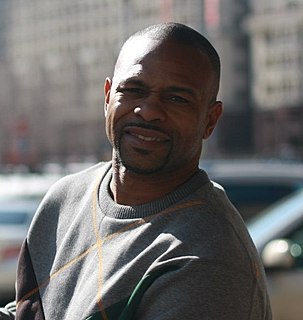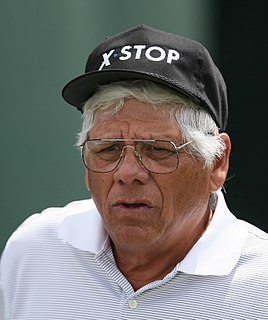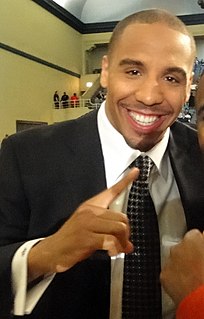A Quote by David Nutter
I don't want to be someone whose shot takes you out of the dramatic sequence or takes you out of the emotional story that you're trying to tell or says, 'Hey, look at this cool shot I have here.' To me, that's not right.
Related Quotes
Every shot feels like the first shot of the day. If I'm on the range hitting shot after shot, I can hit them just as good as I did when I was 30. But out on the course, your body changes between shots. You get out of the cart, and you've got this 170-yard 5-iron over a bunker, and it goes about 138.
I like people, I really do. I like meeting people. But most of the time I would rather be at home reading a book than reading in a bookstore. It's a performance, and it ends up being all right, and then you have a nice shot of bourbon afterwards, and it's all good. I want to please people. I want to be nice. I want to be liked. As a result I say yes to everything. But it takes a lot of vital energy out of me.
There's nothing worse than an ostentatious shot or some lighting that draws attention to itself, and you might go, 'Oh, wow, that's spectacular.' Or that spectacular shot, a big crane move, or something. But it's not necessarily right for the film — you jump out, you think about the surface, and you don't stay in there with the characters and the story.
I test the movies a lot, and if the audience says they love the movie, we know we're on the right track. And if they tell me they hate it, I try to figure out what I've done wrong. But every time out, the audience wants me to go deeper, they want to know more about the characters, and they don't want these movies to be shallow. So they really urge me to tell them a complicated story, and then when I do so, they're thrilled
Making music is an emotional thing. And when you're on a video shoot with 50 people there, you have to somehow, in a non-emotional way, say what you want and not feel guilty for it. And that takes growing up and that takes... not caring how people perceive you as much. And it just takes experience, I think.

































